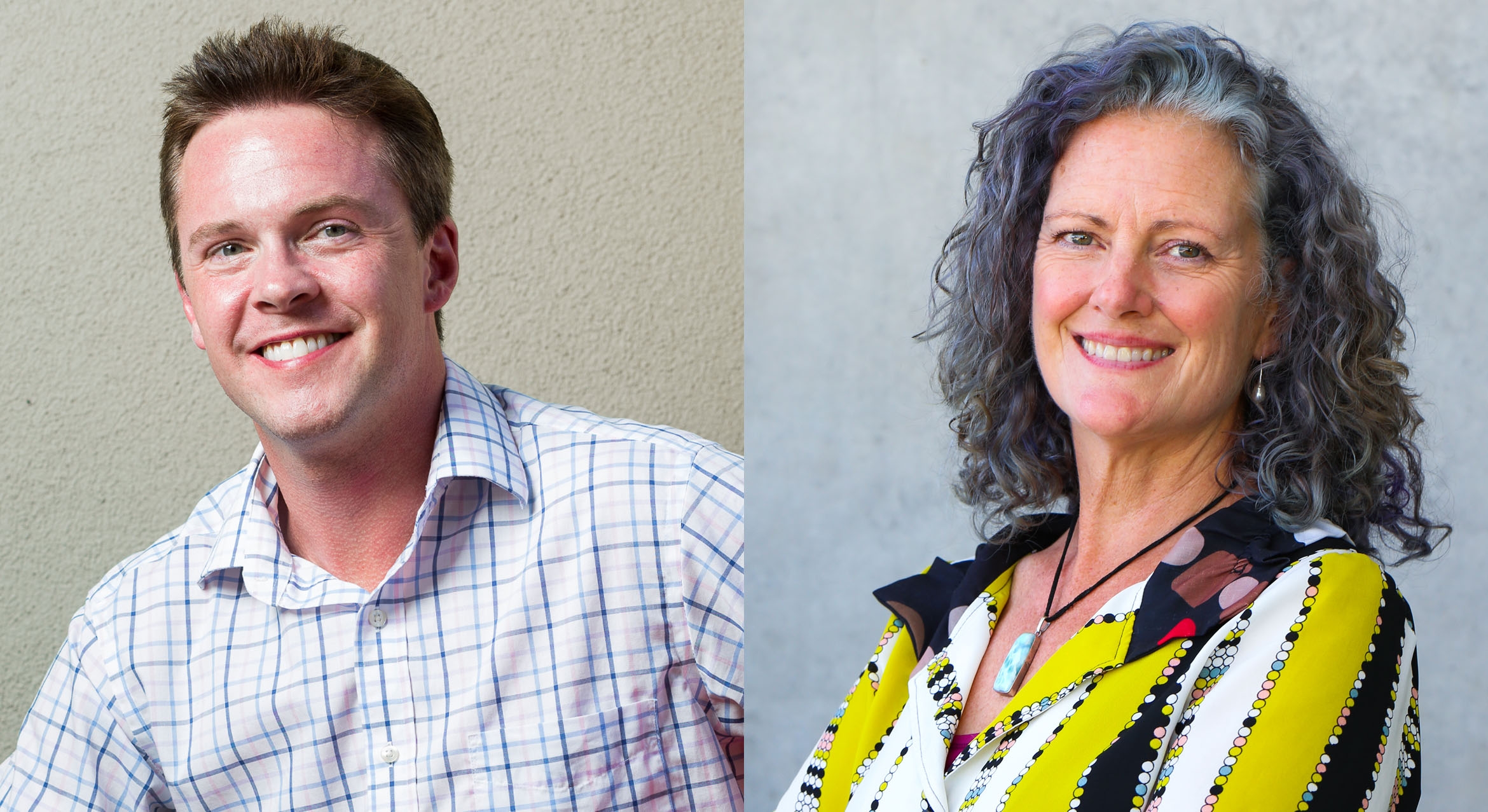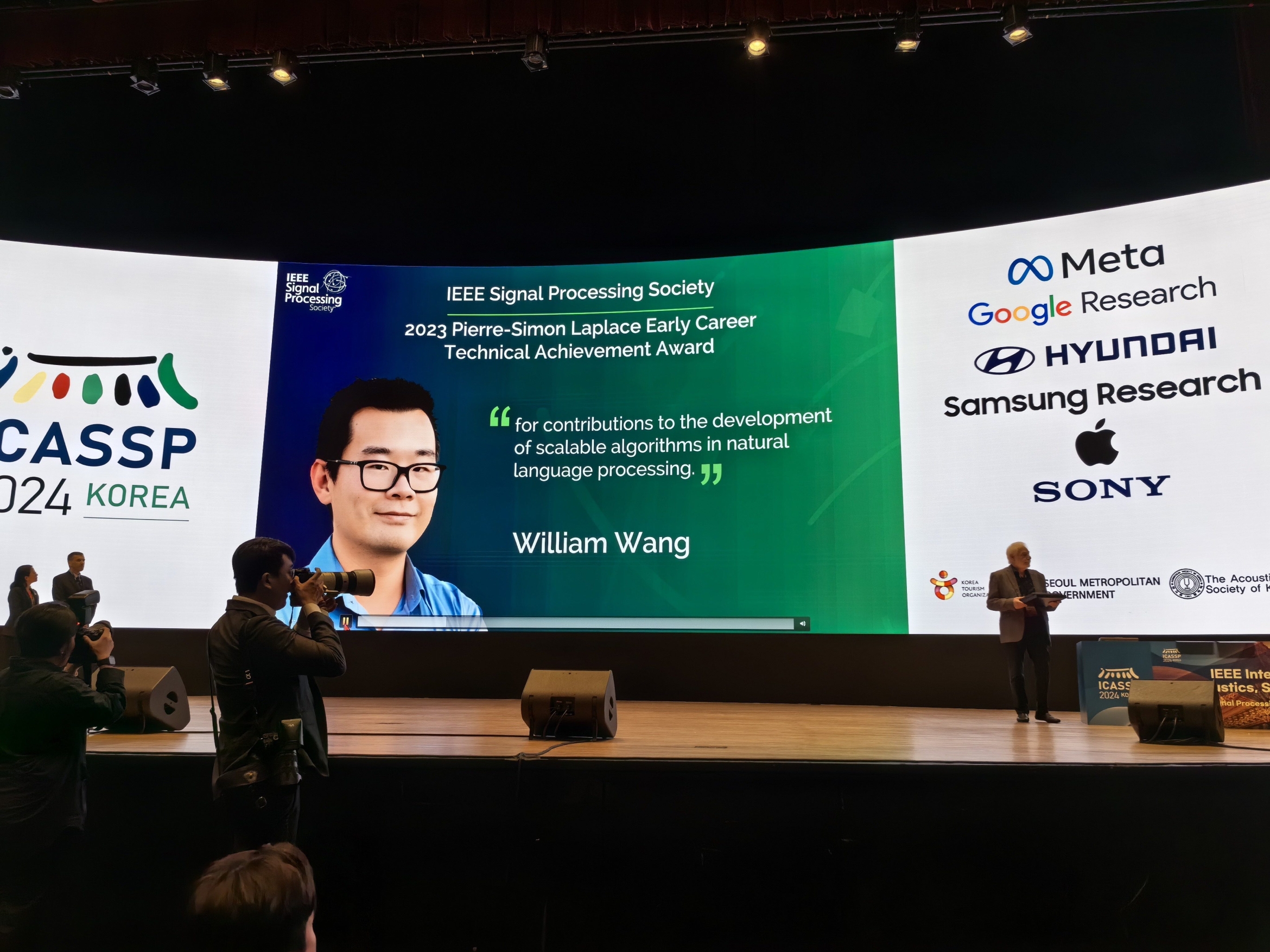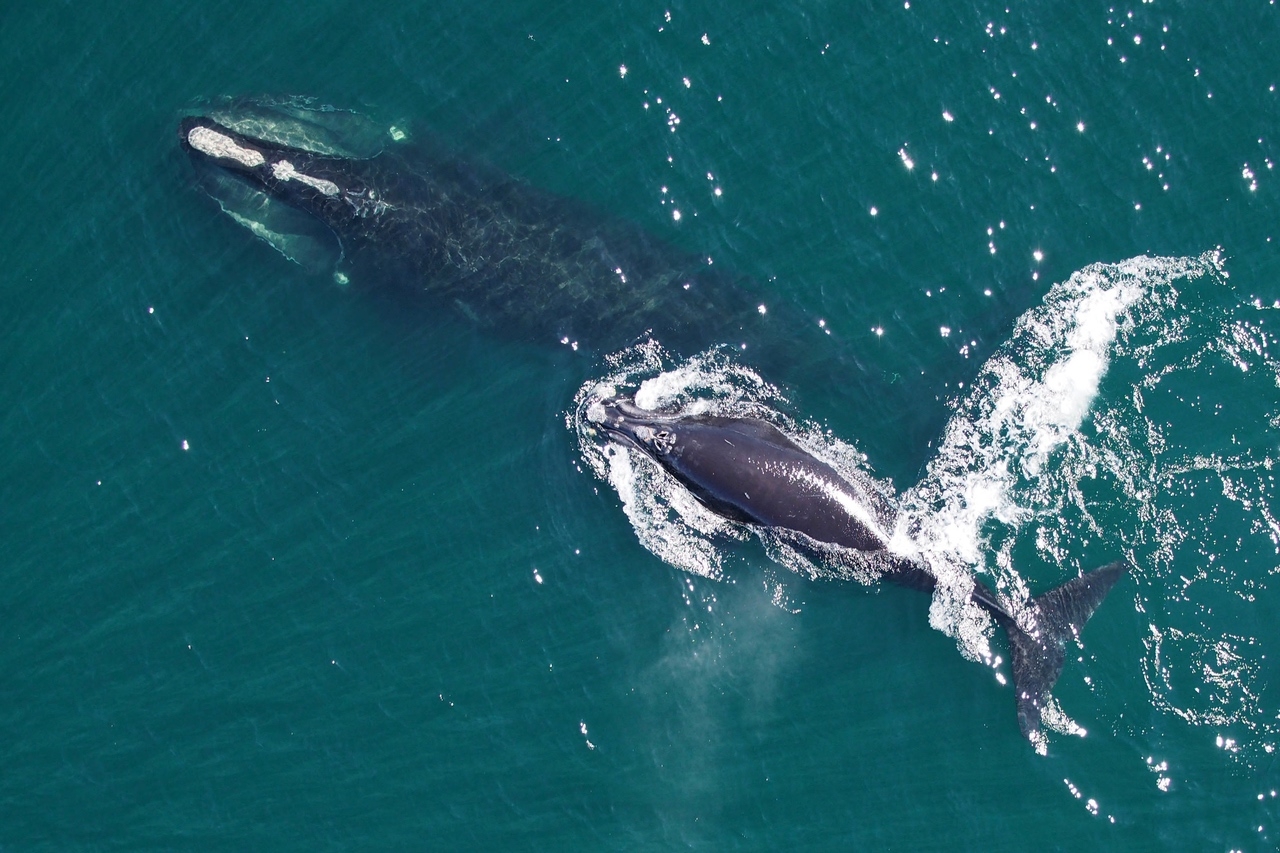The 2004 Nobel Prize in physics has been awarded to David Gross, professor of physics and director of the Kavli Institute for Theoretical Physics at the University of California, Santa Barbara, and two others.
The prize is for the "discovery of asymptotic freedom in the theory of the strong interaction" and is shared with H. David Politzer of the California Institute of Technology and Frank Wilczek of the Massachusetts Institute of Technology. Wilczek also served on the faculty at UCSB from 1981 to 1989.
Wilczek was a student of Gross's at Princeton University when they made the discovery. Politzer was working independently on a similar calculation while at Harvard University.
According to the Royal Swedish Academy of Sciences, their "discovery was expressed in 1973 in an elegant mathematical framework that led to a completely new theory, Quantum ChromoDynamics." With this discovery, "Gross, Politzer and Wilczek have brought physics one step closer to fulfilling a grand dream, to formulate a unified theory comprising gravity as well––a unified theory for everything."
Faculty members at UCSB have won five Nobel Prizes since 1998.
"Our campus is tremendously honored and proud of this prize to a truly outstanding scientist and colleague, David Gross," said Henry T. Yang, chancellor of UCSB. "We are extremely pleased by this news and offer David and the researchers with whom he shares this prize our warmest congratulations."
In a statement, UC President Robert C. Dynes said: "Professor Gross, an alumnus of the University of California, has been a superb researcher and teacher throughout his career, and the awarding of the Nobel in physics today underscores his significant contributions to the field and his achievements in the creation of new knowledge. This award underscores, once again, the major contribution that research universities make to our understanding of the world. My heartfelt congratulations to my colleague and a fellow physicist."
Said UCSB's Dean of Science, Martin Moskovits, "Nothing could be more fundamental than the structure of the nucleus––the tiny kernel at the center of every atom. David Gross is one of the founders of our current understanding of the nucleus, the so-called standard model. His work has impacted the entire field of particle physics for decades and continues to break new ground in our quest for the one central and unified theory that underlies all of physics, all of chemistry–– everything. He is one of the great physicists of the age."
The National Science Foundation has supported the institute at UCSB since its creation in 1979. Professor Gross has been the principal investigator on major NSF awards since 1994 totalling $31.8 million.
Biographical snapshot
David Gross joined the Institute for Theoretical Physics at the University of California, Santa Barbara in January 1997. He received his Ph.D. from the University of California, Berkeley in 1966 and then was a Junior Fellow at Harvard. In 1969 he went to Princeton where he was appointed Professor of Physics in 1972, and later Eugene Higgins Professor of Physics, and Thomas Jones Professor of Mathematical Physics.
Dr. Gross was an Alfred P. Sloan Foundation Fellow (1970-74), was elected Fellow of the American Physical Society in 1974, Fellow of the American Academy of Arts and Sciences in 1985, Member of the National Academy of Sciences in 1986 and Fellow of the American Association for the Advancement of Science in 1987.
He is the recipient of the J. J. Sakurai Prize of the American Physical Society in 1986, a MacArthur Foundation Fellowship Prize in 1987, the Dirac Medal in 1988, the Oscar Klein Medal in 2000 and the Harvey Prize of the Technion in 2000. He has received two honorary degrees.
The Frederick W. Gluck Chair in Theoretical Physics, an endowed chair for the director of the Kavli Institute for Theoretical Physics, was established in 2002 with a generous gift from UCSB Trustee Fred Gluck.
Related Links



